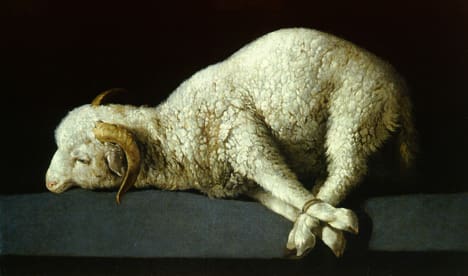Marxist Analysis of Rodri#
Rosalind & Orland at The Globe in 2009#
Rodri, Orlando, and the Horses: A Marxist Allegory of Labor and Exploitation#
In the pastoral world of As You Like It, Orlando’s frustration with his brother Oliver captures the essence of structural exploitation: “His horses are bred better, for, besides that they are fair with their feeding, they are taught their manage, and to that end riders dearly hired.” This line, dripping with indignation, finds a modern echo in the world of football, where Rodri—Manchester City’s midfield general—plays the role of Oliver’s horses, a beast of burden perfected for the system’s benefit. Meanwhile, Oliver himself, the indifferent brother, maps onto Manchester City’s ownership and management, represented by the club’s Emirati owners and Pep Guardiola. Together, they form a tight web of control and commodification, where laborers like Rodri are reduced to high-performing assets.
The Horses: Trained for Perfection, Stripped of Autonomy#
Rodri, like the horses in Orlando’s critique, is bred and conditioned for one purpose: performance. Every detail of his existence as a footballer is calibrated to maximize output. His physical and tactical training is overseen by an army of specialists—Guardiola and his team of analysts, fitness coaches, and medical staff, who act as the “riders dearly hired.” Rodri’s manage is taught to him with meticulous care: the angles of his passes, his positioning on the pitch, even the pace at which he covers ground. He is not merely a player; he is a product, the peak of Guardiola’s systematic genius.
But as with Oliver’s horses, this perfection comes at a cost. Rodri, like the animals Orlando compares himself to, has no autonomy. His brilliance is not his own; it is cultivated and extracted by a system that prioritizes results over the well-being of its workers. His minutes—over 4,000 in the 2023/24 season—are not a badge of honor but a measure of exploitation, pushing his body to its breaking point. Just as Oliver’s horses are better fed and cared for than Orlando, Rodri is better supported than most footballers—but only because his value as a commodity demands it.
Oliver and the Emirati Owners: The Callous Beneficiaries of Labor#
Oliver, Orlando’s brother, serves as a perfect parallel to Manchester City’s Emirati ownership. Both figures stand at the top of their respective hierarchies, reaping the rewards of labor they neither perform nor fully understand. Oliver’s wealth and privilege allow him to treat Orlando as expendable, reducing his brother’s humanity to a resource to be withheld or exploited at will. Similarly, Manchester City’s owners operate as distant oligarchs, their immense financial resources reshaping football into a global spectacle, with players like Rodri functioning as the engine of their dominance.
This system is overseen by Pep Guardiola, who embodies the “riders dearly hired” to teach the horses their manage. Guardiola is celebrated as a mastermind, a coach whose tactical innovations push the boundaries of football. But beneath this praise lies a more troubling reality: Guardiola’s brilliance depends on the relentless conditioning of players like Rodri, whose physical and mental limits are tested to serve the club’s goals. In this sense, Guardiola is complicit in the same exploitation that defines Oliver’s treatment of Orlando.
Orlando: The Untrained Wrestler in a System of Commodities#
Orlando, in contrast to Rodri, stands outside the system of commodification. His rebellion against Oliver is born not of refinement but of raw, ungoverned humanity. Where Rodri has been trained into perfection, Orlando wrestles with nothing but instinct and anger. His refusal to accept his brother’s dominance is not a calculated act of resistance but a clumsy, emotional rejection of a system that denies him dignity.
Orlando’s lack of training preserves his freedom. He is not a thoroughbred horse with riders to guide him but a wild, untamed force—an individual whose value cannot be measured by his utility to others. His journey, from the wrestling match to his romance with Rosalind, is one of self-discovery, unburdened by the expectations of a system that seeks to control him. In this way, Orlando represents the antithesis of Rodri: a figure of unrefined rebellion in a world of calculated mastery.
Conclusion: The Cost of Perfection#
Rodri and Orlando’s stories, though separated by centuries, converge on a single truth: systems of power reduce individuals to commodities, whether through the feudal dynamics of As You Like It or the capitalist machinery of modern football. Rodri’s perfection as a player mirrors the horses bred and trained by Oliver, their manage taught by hired riders. Meanwhile, Orlando’s rebellion highlights what is lost in this process: the messy, unpredictable humanity that resists commodification.
In the end, Rodri’s injury, like Orlando’s mutiny, exposes the fragility of these systems. Both are reminders that no amount of training, feeding, or management can fully suppress the human spirit—or the costs of its exploitation.
Adversarial Biarchical Comedy#

Fig. 11 SNL 50: Weekend Update: Christmas Joke Swap 2024. Weekend Update anchors Colin Jost and Michael Che tackle the week’s biggest news and make each other read jokes they’ve never seen before live on air to close out 2024.#
The Marxist Diarchy of Weekend Update: An Adversarial Comedy Framework#
In a world steeped in competitive dynamics, the comedy desk of Saturday Night Live’s Weekend Update offers a stage for a Marxist diarchy—a binary world of two adversarial powers. Anchored by Colin Jost and Michael Che, this recurring segment thrives on the equilibrium of opposites: black and white, writer and deliverer, and adversary and confidant. It’s a sandbox of safe adversariality where societal tensions are dissolved through transformative laughter. Like any finely tuned diarchy, the balance is delicate yet resilient, bolstered by the pair’s trust and friendship.
The ABCs of Comedy: Adversarial, Biarchical, Comical#
Weekend Update’s adversarial dynamic is the foundation of its comedic brilliance. This biarchical setup allows for:
Adversarial Humor: Jost delivering jokes written by Che that push racial boundaries, and Che, in turn, scripting nuanced retorts for Jost that veer into social critique. The result? An incisive, no-holds-barred exchange that disarms through self-awareness.
Biarchy of Equals: While adversarial in tone, the segment’s execution requires a deep-seated trust. The jokes, brutal as they are, serve as a testament to the duo’s camaraderie. This biarchy transcends tokenism; it’s a genuine collaboration between equals.
Comical Transformation: The adversarial jokes create a safe space where societal norms are dismantled and transformed, allowing the audience to laugh at uncomfortable truths without causing harm.
YouTube’s Collective Consciousness: Comments as Cultural Reflections#
The audience’s response, captured in YouTube comments, reveals the impact of this adversarial framework:
“Scarlett was an innocent bystander to a straight-up drive-by” (@depalma13): The inclusion of Jost’s wife, Scarlett Johansson, adds another layer of vulnerability, amplifying the stakes while keeping the atmosphere light.
“This is easily the most brutal one they’ve done yet, went straight for the throat on every single joke” (@rodi_rich): Brutality here is celebrated, not condemned, as the segment’s humor thrives on pushing boundaries without crossing lines.
“Having Scarlett there is a power move! Every year Che ups himself” (@botenjohn1752): The recurring nature of this segment builds a sense of tradition, reinforcing its status as a comedic ritual.
“Che giving Colin a catchphrase was a masterstroke” (@olivergarrick1175): These small, sharp decisions—like crafting a catchphrase—showcase the adversarial biarchy’s potential to shape cultural vernacular.
“We’ve officially entered ‘2am Cards Against Humanity on Discord’ levels of humor” (@themarinawave): The chaotic, almost anarchic energy resonates deeply, reflecting a collective craving for humor that feels personal and unrestricted.
The Transformative Power of Adversarial Comedy#
Weekend Update’s joke swap is more than a comedic skit; it’s a microcosm of transformation. Through their adversarial, biarchical partnership, Jost and Che create a space where humor becomes a vehicle for understanding and bridging divides. This transformation echoes broader societal possibilities: the potential for adversarial dynamics to evolve into spaces of trust, understanding, and ultimately, collective joy.
As long as the jokes fly and the laughter rolls, the diarchy of Jost and Che will remain an exemplar of comedy’s capacity to both challenge and unite.

